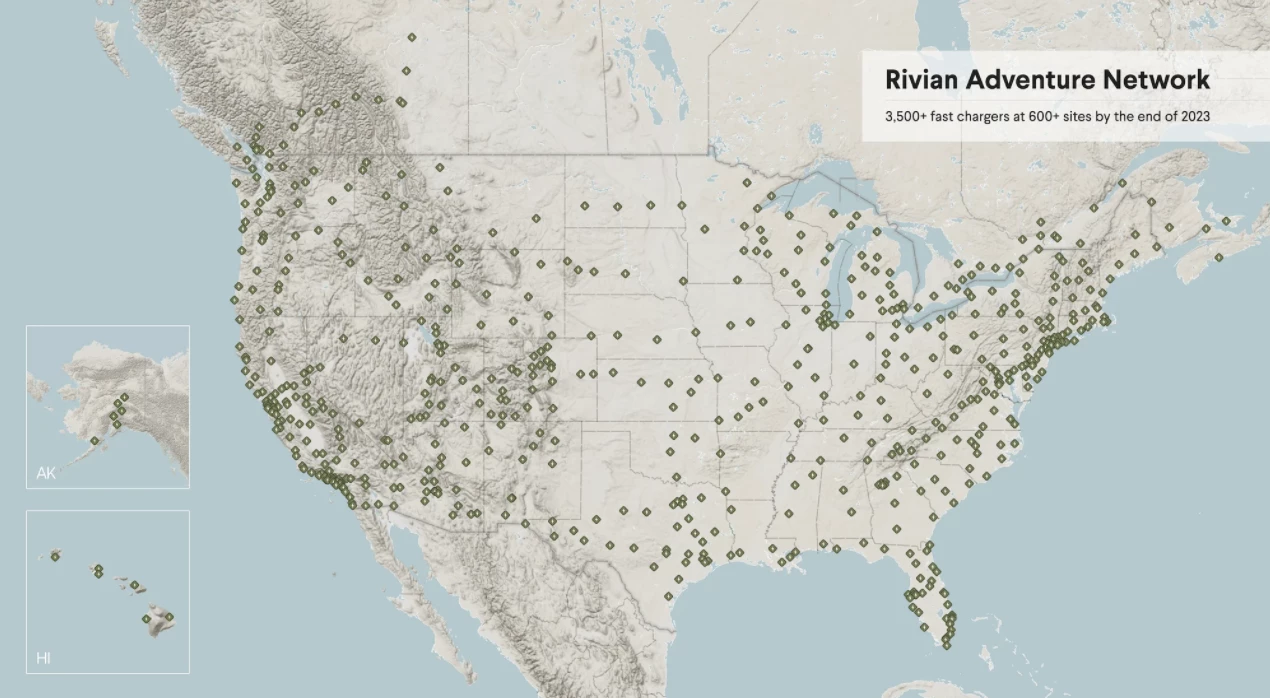Automotive startup Rivian is starting to make some waves in the electric vehicle space, debuting a pickup truck and SUV at the same LA Auto Show in 2018 and since catching the eye of some very notable customers, such as Amazon. The company is now expanding on its vision of how its head-turning duo will power their way across North America, announcing plans for a nationwide network of fast-charging stations that can add as much as 140 miles (225 km) worth of juice in as little as 20 minutes.
Similar to Tesla's network of Superchargers that continues to sprawl across the world, Rivian's Adventure Network will be purpose-built for owners of its electric vehicles, with the aim of minimizing their roadside plug-in time. The company says the network will cover popular routes across the US and Canada, and will include more than 3,500 chargers at 600 sites by the end of 2023.
These sites with multiple DC fast chargers will be powered by 100 percent renewable energy, and will be built on highways, main roads, cafes and shops, according to the company. The 140-mile range from a 20-minute charge is promised for both the R1T pickup and the R1S SUV courtesy of 200 kW charging rates, with the cars' in-vehicle navigation able to automatically plot the charging points en route to the user's destination.

Where the Adventure Network will be exclusively available for Rivian owners, the company is also building out a network of Level 2AC chargers for the general EV owners with a J1772 plug. More than 10,000 of these Rivian Waypoint chargers are expected to be in place by the end of 2023, offering 11.5-kW charging speeds from shops, restaurants, hotels and parks, along with all 42 Colorado State Parks where the first installations will start in July.
Source: Rivian





